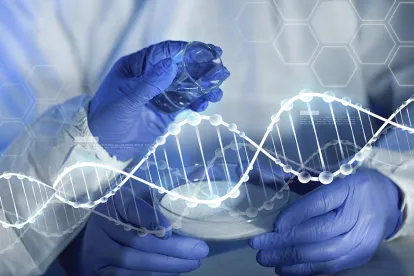On September 12, 2022, President Joseph Biden signed an Executive Order creating a National Biotechnology and Biomanufacturing Initiative “that will ensure we can make in the United States all that we invent in the United States.” On September 14, 2022, the White House will host a Summit on the National Biotechnology and Biomanufacturing Initiative during which cabinet agencies will announce a wide range of new investments and resources that will allow the United States to harness the full potential of biotechnology and biomanufacturing and advance the President’s Executive Order.
According to a White House fact sheet, the initiative will accelerate biotechnology innovation and grow America’s bioeconomy across multiple sectors in industries such as health, agriculture, and energy. It will “drive advances in biomanufacturing that substitute fragile supply chains from abroad with strong chains at home, anchored by well-paying jobs in communities all across America.” It will improve food and energy security, and promote agricultural innovation while mitigating the impacts of climate change.
Specifically, the initiative will:
-
Grow Domestic Biomanufacturing Capacity: The initiative will build, revitalize, and secure national infrastructure for biomanufacturing across America, including through investments in regional innovation and enhanced bio-education, while strengthening the U.S. supply chain that produces domestic fuels, chemicals, and materials.
-
Expand Market Opportunities for Biobased Products: The fact sheet notes that the U.S. Department of Agriculture’s (USDA) BioPreferred Program “is the standard for sustainable procurement by government agencies, both providing an alternative to petroleum-based products and supporting good-paying jobs for American workers.” The initiative will increase mandatory biobased purchasing by federal agencies and ensure that the Office of Management and Budget (OMB) and USDA regularly publish progress assessments. The fact sheet states that doing so “will provide specific directions to industry about gaps in biobased product options, leading to the creation of new products and new markets.” Together, the initiative will grow and strengthen the BioPreferred Program, increase the use of renewable agricultural materials, and “position American companies to continue to lead the world in bio-innovation.”
-
Drive Research and Development (R&D) to Solve Our Greatest Challenges: According to the fact sheet, focused government support for biotechnology can quickly produce solutions, “as seen with the first-of-their-kind mRNA vaccines during the COVID-19 pandemic.” This initiative directs federal agencies to identify priority R&D needs to translate bioscience and biotechnology discoveries into medical breakthroughs, climate change solutions, food and agricultural innovation, and stronger U.S. supply chains.
-
Improve Access to Quality Federal Data: Combining biotechnology with massive computing power and artificial intelligence can produce significant breakthroughs for health, energy, agriculture, and the environment. The Data for the Bioeconomy Initiative will ensure that biotechnology developers have streamlined access to high-quality, secure, and wide-ranging biological data sets that can drive solutions to urgent societal and global problems.
-
Train a Diverse Skilled Workforce: The United States is facing a shortage of relevant talent spanning all levels, from community college to graduate school. The initiative will expand training and education opportunities for all Americans in biotechnology and biomanufacturing, with a focus on advancing racial and gender equity and support for talent development in underserved communities.
-
Streamline Regulations for Products of Biotechnology: Advances in biotechnology are rapidly altering the agricultural, industrial, technological, and medical products landscape, which can create challenges for developers and innovators. The initiative will improve the clarity and efficiency of the regulatory process for products of biotechnology so that valuable inventions and products can come to market faster without sacrificing safety.
-
Advance Biosafety and Biosecurity to Reduce Risk: The initiative will prioritize investments in applied biosafety research and incentivize innovations in biosecurity to reduce risk throughout the biotechnology R&D lifecycles.
-
Protect the U.S. Biotechnology Ecosystem: The initiative will protect the U.S. biotechnology ecosystem by advancing privacy standards and practices for human biological data, cybersecurity practices for biological data, standards development for bio-related software, and mitigation measures for risks posed by foreign adversary involvement in the biomanufacturing supply chain.
-
Build a Thriving, Secure Global Bioeconomy with Partners and Allies: According to the fact sheet, the initiative advances international cooperation to leverage biotechnology and biomanufacturing to tackle the most urgent global challenges -- from climate change to health security -- and to work together to ensure that biotechnology product development and use aligns with our shared democratic ethics and values, and that biotechnology breakthroughs benefit all citizens.
The White House has posted a transcript of the press call announcing the Executive Order.




 />i
/>i
